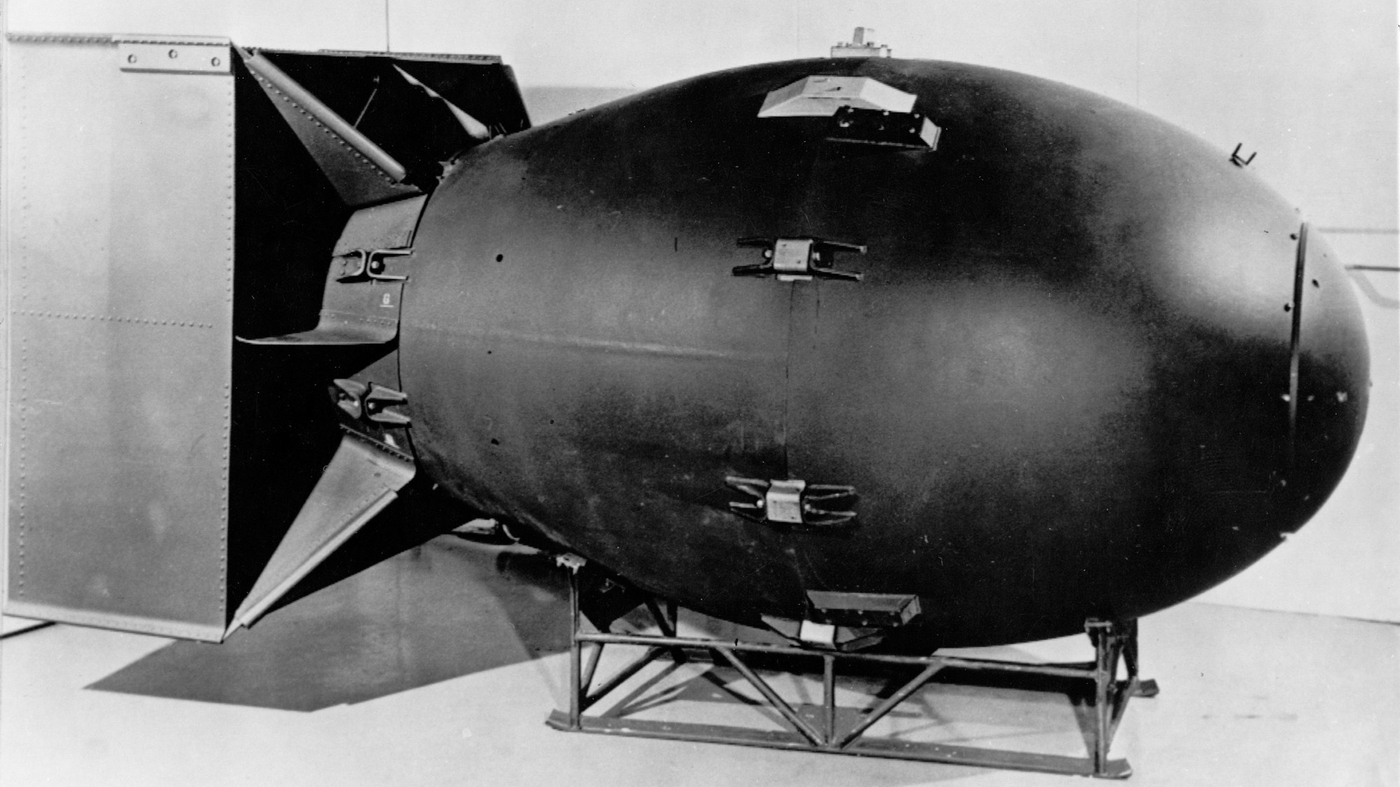
The type of atomic bomb that was used in Japan in World War II, known as the “Fat Man,” is shown here in a 1960 photo released by the U.S. government.
AP
Have you ever wondered what would change if you could rewind your life and redo one small moment? Brian Klaas, a professor of Global Politics at University College London, explores this theme in a new book called “Fluke: Chance, Chaos, and Why Everything We Do Matters.”
He argues that tiny, chance moments can change our individual lives, maybe even the course of history on a global scale. Klaas offers several examples of big events that could have gone down very differently had one small thing been slightly altered.
The 1997 Zambian coup attempt in Southern Africa was prevented – almost literally, by a thread. The U.S. bombed Hiroshima and Nagasaki and killed hundreds of thousands of people in 1945. Kyoto, originally considered for targetting, was spared because a U.S. official had vacationed there with his wife 19 years earlier and asked President Harry Truman to spare it.
How could we benefit from acknowledging the world is chaotic and uncertain? Why, in an interconnected world, does everything we do matter?
Find more of our programs online. Listen to 1A sponsor-free by signing up for 1A+ at

Leave a Reply